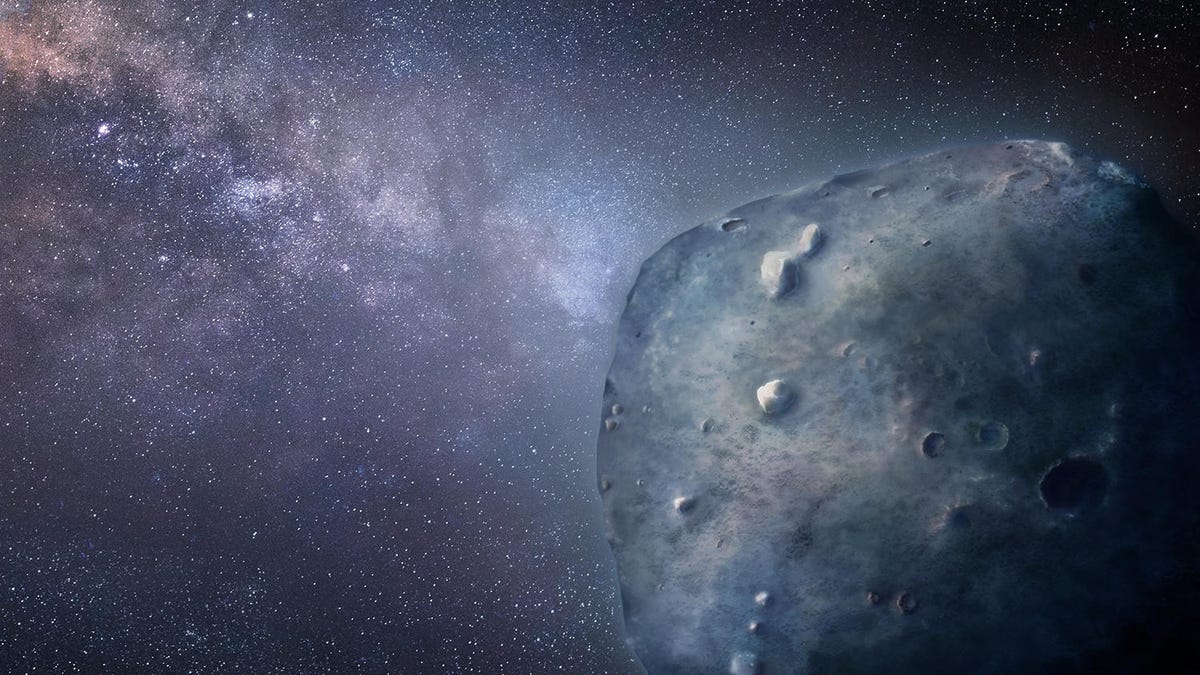Newly spotted asteroid could one day hit Earth, but don't panic
It's on a list of the riskiest space objects spotted so far, but how much should we really worry?

An artistic impression of a near Earth asteroid.
A newly discovered asteroid briefly ranked high on the European Space Agency's "risk list" of space objects that have a better than zero chance of hitting Earth.
"2019 SU3 is a new object that entered the top 10 of our risk list in late September, for a possible impact with a 1 in 400 chance of occurring in year 2084," ESA's Planetary Defense Office wrote in its October newsletter. "It's small size of about 15 meters (49 feet) would result in limited consequences even in case of impact."
For a little context, the bolide that exploded over Russia in 2013 was estimated to have been about 20 meters (66 feet) in diameter, and it may have started out even larger before entering our atmosphere.
So if asteroid 2019 SU3 does impact Earth (and a 1 in 400 chance means that's far from likely), it's not a city-killer and it won't send us the way of the dinosaurs, but it could be one of the most significant impacts of the century.
But after its initial discovery, and more observations, the newfound space rock slid out of the top 10 on the risk list and sits at No. 40 as of this writing.
Another asteroid discovered earlier this year sits at No. 3 on the list: 2019 DS1 is estimated to be 26 meters (85 feet) wide and has a slightly better than 1 in 800 chance of hitting Earth in 2082.
However, making it on the risk list doesn't actually mean an asteroid is particularly risky. Remember, the list is just a catalog of objects where the chance of impact is greater than zero, but at the moment all the objects on the list have a Palermo Scale value of less than -2.
You can click the following link to learn all about how the Palermo Scale scores impact hazard. But all you really need to know is that, according to NASA, "actual scale values less than -2 reflect events for which there are no likely consequences."
So for the moment the smartest course of action is probably still to work on scanning the skies for the asteroids we haven't spotted yet, because the one that snuck up on Russia in 2013 hadn't been discovered until that moment.

